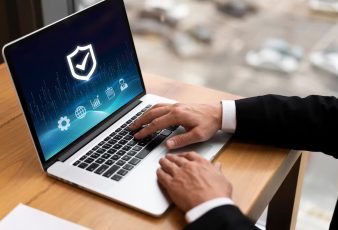Cybersecurity is the topmost priority of every organization, irrespective of its size today. You will find news on the front line about cyberattacks and security breaches every day. Not only businesses but millions of individuals have also become the victim of cybercrimes. It doesn’t matter how big or small your business is; it can be a target of cybercriminals.
Hence, it’s essential to have a strong cybersecurity system to protect your crucial business information. Having a system is useful, but it’s of no use if everyone within your organization follows the guidelines. It should be an integral part of your organization, and all your employees should be careful. Now that you understand.
How to Secure Your Business from Cyber Attacks?
Here are some practical tips to protect your organization from cybercrimes. The following steps might seem silly, but they can make a significant difference.
Educate Your Employees:
Start with your employees by training them about cybersecurity. Educate them about the importance of securing data and how it can impact your business. Usually, employees don’t pay attention to internet security and which can turn to be a risk for the business.
They open different unauthorized sites which can download viruses. Again, they might share some important information with an outsider that they shouldn’t share. So, it’s important to invest in training your employees about cybersecurity and how to keep business information confidential and secure.
Update and Scan:
Second, you should update and scan all your devices to the latest version. Usually, you and your employees may ignore these security alerts while busy at work. However, you need to scan your system with antivirus or security software like Windows Defender. Even if you’re using a free version, you should scan it regularly.
Another important thing is to check for any flaws in your local area network. You should resolve any minor bugs or errors in your network as soon as possible. If you are suspicious about something, change your passwords from time to time. Again, use proxy servers or virtual private networks to keep your network from unauthorized access or malware infection.
Keep Back-ups:
Always keep back-ups of all your essential files and information. Cybercriminals, when gaining access to your data and information, your data may lose or get corrupted. In such a situation, it’s not applicable if you have kept your data on mobile phones, notebooks, or somewhere else.
The best way to protect data loss or corruption is to have backups. Invest in a third-party backup program that you can restore when necessary. There are a plethora of backup services available. You should opt for a program that facilitates automatic backups.
Website Maintenance:
Nowadays, every business has a website, and it’s essential to ensure that your website is secure. Many companies overlook the importance of website maintenance. Your website might contain essential information about your users, your business, payment information, etc.
So, you should ensure that your website has the highest security protocol (HTTPS). Additionally, your website has the required security certificate, such as SSL.
Information Security:
Finally, you need to ensure that the information of your business is secure. There can be loss or corruption of your data and information. So, these are some practical steps to secure your business information:
- Always have a backup plan, as mentioned above.
- Train your employees about cybersecurity and always follow the best practices.
- Invest in security tools that safeguard the essential information of your business.
These are some of the best security practices that you can implement in your business.
Final Words:
Hopefully, the above information has helped you to learn how to keep your business secure from cybercriminals. Educating your employees, maintaining backups of your information, maintaining your website are some of the best practices to safeguard your business. It’s always advisable to invest in an antivirus program to keep your systems secure from virus attacks and unauthorized access.




























